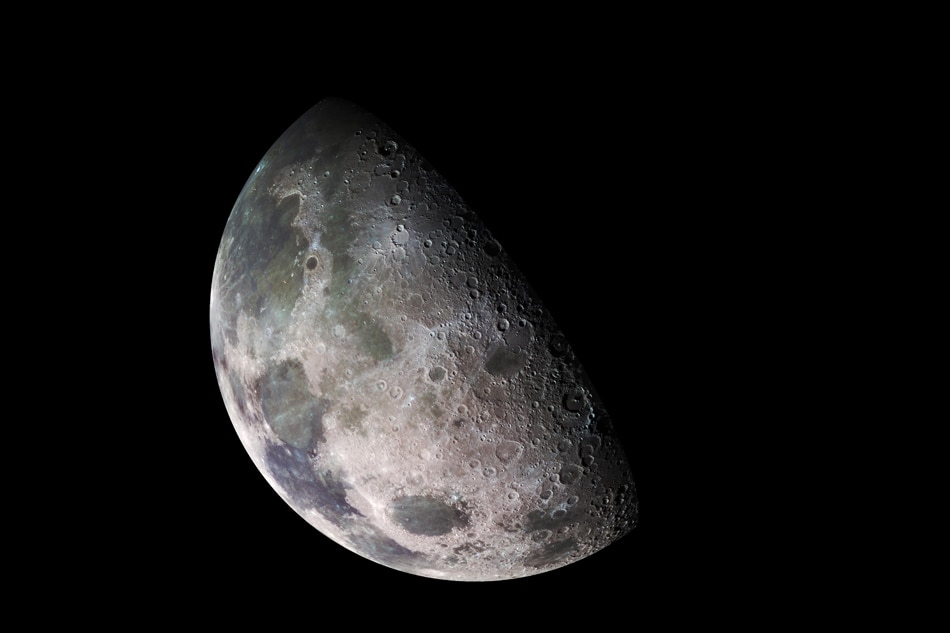Rocket set to hit Moon on March 4 was built by China, not SpaceX, say astronomers | ABS-CBN

Welcome, Kapamilya! We use cookies to improve your browsing experience. Continuing to use this site means you agree to our use of cookies. Tell me more!
Rocket set to hit Moon on March 4 was built by China, not SpaceX, say astronomers
Rocket set to hit Moon on March 4 was built by China, not SpaceX, say astronomers
Agence France-Presse
Published Feb 15, 2022 09:07 AM PHT
WASHINGTON - Astronomy experts say they originally misread the secrets of the night sky last month: it turns out that a rocket expected to crash into the Moon in early March was built by China, not SpaceX.
WASHINGTON - Astronomy experts say they originally misread the secrets of the night sky last month: it turns out that a rocket expected to crash into the Moon in early March was built by China, not SpaceX.
A rocket will indeed strike the lunar surface on March 4, but contrary to what had been announced, it was built not by Elon Musk's company, but by Beijing, experts now say.
A rocket will indeed strike the lunar surface on March 4, but contrary to what had been announced, it was built not by Elon Musk's company, but by Beijing, experts now say.
The rocket is now said to be 2014-065B, the booster for the Chang'e 5-T1, launched in 2014 as part of the Chinese space agency's lunar exploration program.
The rocket is now said to be 2014-065B, the booster for the Chang'e 5-T1, launched in 2014 as part of the Chinese space agency's lunar exploration program.
The surprise announcement was made by astronomer Bill Gray, who first identified the future impact, and admitted his mistake last weekend.
The surprise announcement was made by astronomer Bill Gray, who first identified the future impact, and admitted his mistake last weekend.
ADVERTISEMENT
"This (honest mistake) just emphasizes the problem with lack of proper tracking of these deep space objects," tweeted astronomer Jonathan McDowell, who advocates for greater regulation of space waste.
"This (honest mistake) just emphasizes the problem with lack of proper tracking of these deep space objects," tweeted astronomer Jonathan McDowell, who advocates for greater regulation of space waste.
So the rocket about to hit the Moon, it turns out, is not the one we thought it was. This (an honest mistake) just emphasizes the problem with lack of proper tracking of these deep space objects. https://t.co/JXKpUmEC2X
— Jonathan McDowell (@planet4589) February 13, 2022
So the rocket about to hit the Moon, it turns out, is not the one we thought it was. This (an honest mistake) just emphasizes the problem with lack of proper tracking of these deep space objects. https://t.co/JXKpUmEC2X
— Jonathan McDowell (@planet4589) February 13, 2022
It turns out that a rocket on course to strike the Moon in March is NOT a Falcon 9 second stage. Astronomers now believe it is highly probable that the impact object comes from a Chinese rocket launched in 2014.https://t.co/YzMw9ulx54
— Eric Berger (@SciGuySpace) February 13, 2022
It turns out that a rocket on course to strike the Moon in March is NOT a Falcon 9 second stage. Astronomers now believe it is highly probable that the impact object comes from a Chinese rocket launched in 2014.https://t.co/YzMw9ulx54
— Eric Berger (@SciGuySpace) February 13, 2022
"The object had about the brightness we would expect, and had showed up at the expected time and moving in a reasonable orbit," he wrote in post.
"The object had about the brightness we would expect, and had showed up at the expected time and moving in a reasonable orbit," he wrote in post.
But "in hindsight, I should have noticed some odd things" about its orbit, he added.
But "in hindsight, I should have noticed some odd things" about its orbit, he added.
NASA said in late January that it would attempt to observe the crater that will be formed by the explosion of this object, thanks to its probe that orbits around the Moon, the Lunar Reconnaissance Orbiter (LRO).
NASA said in late January that it would attempt to observe the crater that will be formed by the explosion of this object, thanks to its probe that orbits around the Moon, the Lunar Reconnaissance Orbiter (LRO).
The agency called the event an "exciting research opportunity."
The agency called the event an "exciting research opportunity."
la/ia/caw
© Agence France-Presse
ADVERTISEMENT
ADVERTISEMENT


